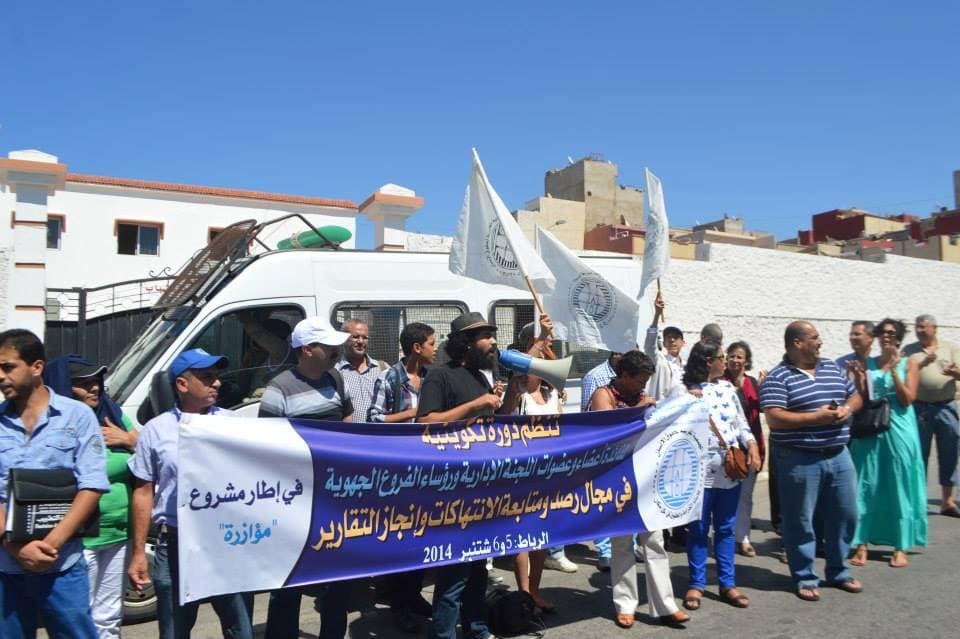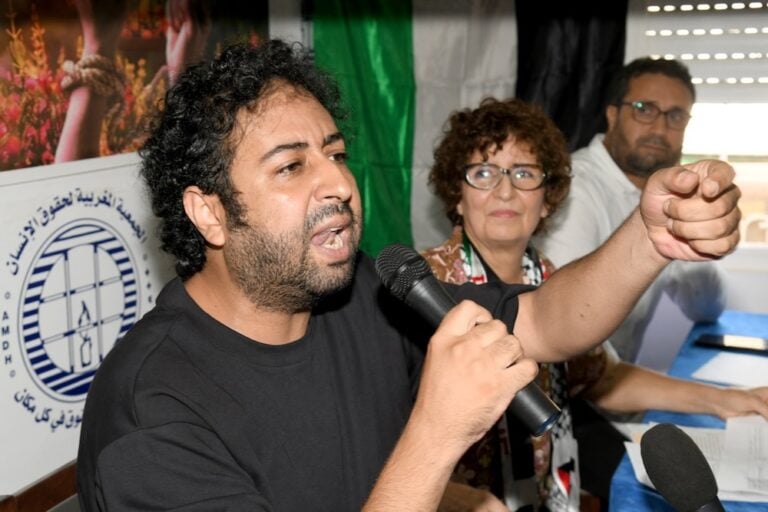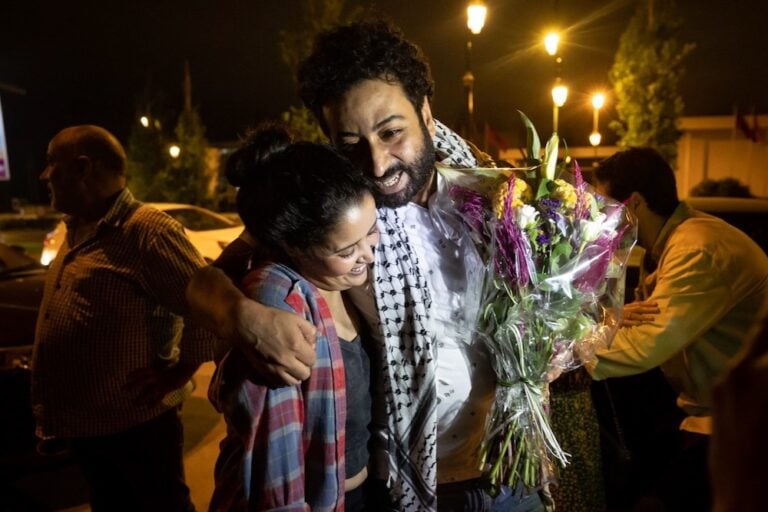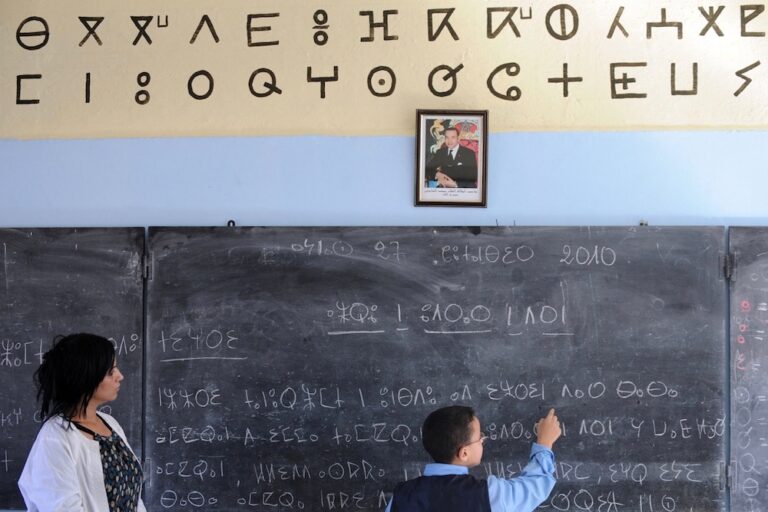Authorities in Morocco continue two-year campaign of prohibiting and obstructing activities of the country’s largest independent human rights organization.
This statement was originally published on hrw.org on 20 February 2017.
Moroccan authorities have carried out a two-year campaign of prohibiting and obstructing activities of the country’s largest independent human rights organization, Human Rights Watch said today. The harassment shows no signs of a let-up despite at least four administrative appeals court rulings in favor of the organization.
The Moroccan Association for Human Rights (AMDH) said that authorities have blocked 125 of its meetings, conferences, and other events in public and private spaces throughout the country since July 2014. The authorities either prohibited the events directly or indirectly, such as by putting pressure on the managers of meeting spaces.
“The widespread and consistent nature of the measures against the AMDH is a clear indication of a campaign ordered from above to weaken an outspoken and nationwide voice on human rights,” said Sarah Leah Whitson, Middle East and North Africa director at Human Rights Watch.
Founded in 1979, the AMDH now has 96 local branches, making it Morocco’s largest independent human rights advocacy organization.
The group said that the authorities have also interfered with the registration of 47 local branches and the group’s head office in Rabat by declining to complete the formalities when the branches file documents that they are legally required to submit periodically. The Law on Associations in article 5 requires the authorities to issue a receipt when the documents are filed.
Without a receipt, a branch faces obstacles to carrying out many essential functions, such as opening a bank account or making withdrawals, said Abdelkhalek Benzekri, AMDH director for international relations.
Several branches and the head office have sued the government over the non-issue of receipts and blocking of gatherings. In November 2014, the Rabat Administrative Court issued a finding that the government had erred when prohibiting the AMDH from organizing a conference and ordered the government to pay damages. In another case, the AMDH headquarters in Rabat sued the Ministry of Youth and Sports in the administrative court for prohibiting the organization from using a ministry facility for an event. The court ruled in the group’s favor in January 2015, and ordered the government to pay damages. The government appealed and lost both these rulings, but has yet to implement the judgments.
In 2015, the Administrative Appeals Court ruled in AMDH’s favor against four government appeals of lower court rulings over the failure to provide receipts. In 2016, the administrative court in the first instance held on two other cases that refusing to issue the receipts to AMDH violated the law.
In only seven of the 125 cases in which meetings were blocked did the authorities provide a written notice, the AMDH said. The 125 cases included both internal meetings limited to staff, and events open to the public, including meetings, conferences, and workshops in both public and privately owned venues. The meetings were to cover topics such as women’s rights, workers’ rights, and the overall human rights situation in Morocco.
AMDH said that in other cases, the government pressed owners of private event locations who had agreed to hold the events to call them off. In other instances, AMDH members arrived to find the doors padlocked.
Youssef Raissouni, the AMDH administrative director, said the group has been able to relocate blocked meetings to its own offices and to the premises of friendly organizations.
Moroccan authorities have imposed restrictions on other domestic and regional rights groups. Khadija Ryadi, the president of the Coordination for Maghreb Human Rights Organizations (CMODH) who was formerly the president of AMDH, told Human Rights Watch that authorities refused to let the CMODH file the required documents relating to its recent internal elections. In October 2016, the Rabat Administrative Court ordered the government to accept the filing of CMODH.
Morocco’s 1958 Law on Public Assemblies, as amended in 2002, requires organizers of public meetings to notify the authorities in advance. However, article 3 exempts from the notification requirement “associations and groups that are legally recognized whose purposes are specifically cultural, artistic, athletic, as well as the meetings of associations and entities providing first aid or charity.”
Benzekri told Human Rights Watch that in the past, as a matter of policy, neither the AMDH’s central bureau in Rabat nor its local chapters had notified the authorities in advance of their public or internal events because it considered itself exempted under article 3, an interpretation that the Rabat Administrative Court has upheld. Lately, in an effort to prevent authorities from blocking events, the AMDH and its branches have been notifying authorities more regularly of upcoming public and internal events, in some cases seeking written approval from the local authorities.
The restrictions on AMDH gatherings went from being rare to frequent around July 2014, when Interior Minister Mohamed Hassad attacked some human rights organizations, accusing them of obstructing the government’s counterterrorism agenda, according to AMDH.
In June 2015, the government expelled two Amnesty International researchers from the country and has not approved any of its research missions since then. In September 2015, it banned Human Rights Watch researchers from conducting research missions to Morocco or Western Sahara.
“The Rabat Administrative Court has now issued several rulings in favor of the AMDH,” Whitson said. “The government should comply with the courts’ rulings, allowing the AMDH once again to organize meetings and events freely.”



